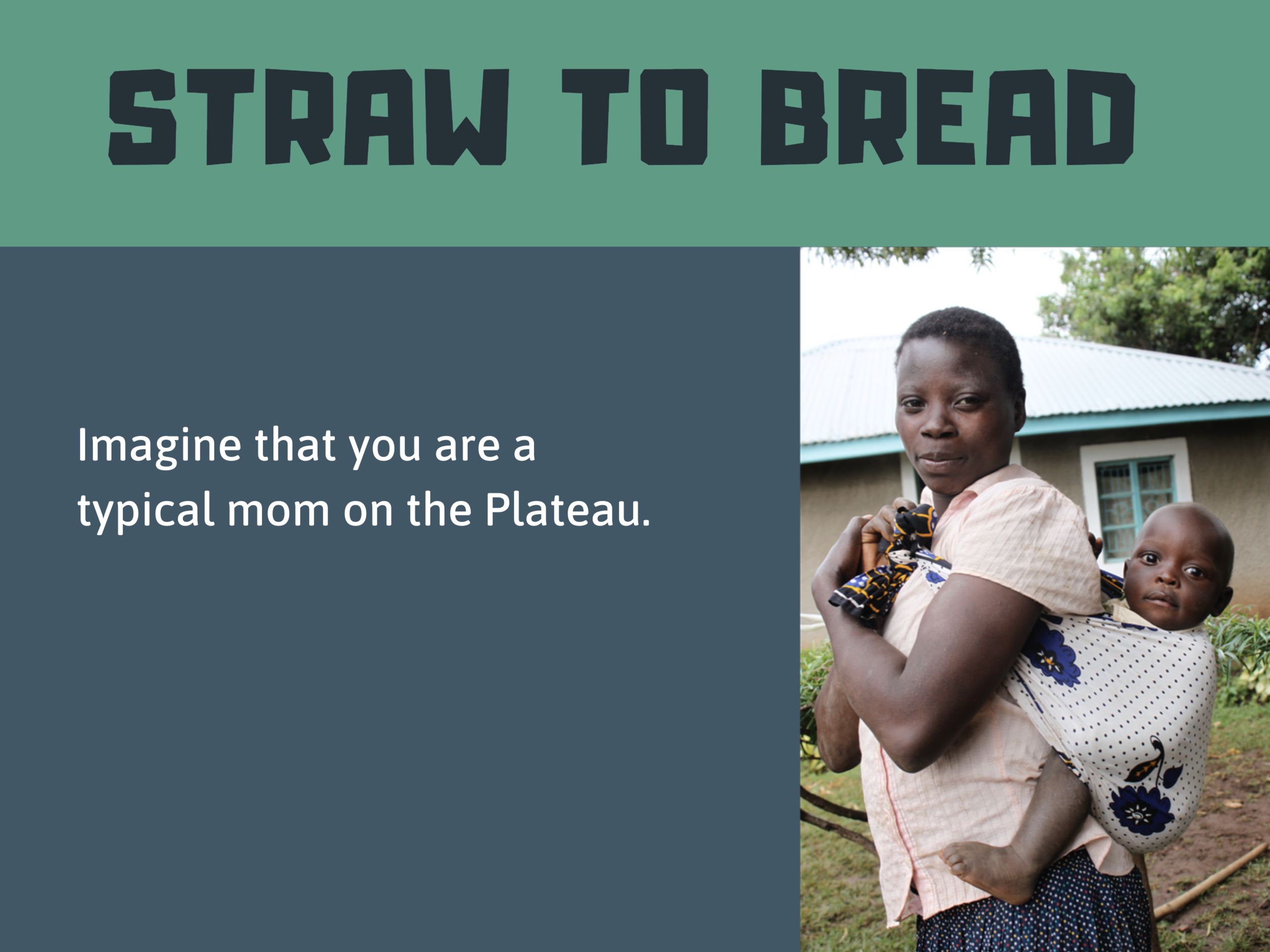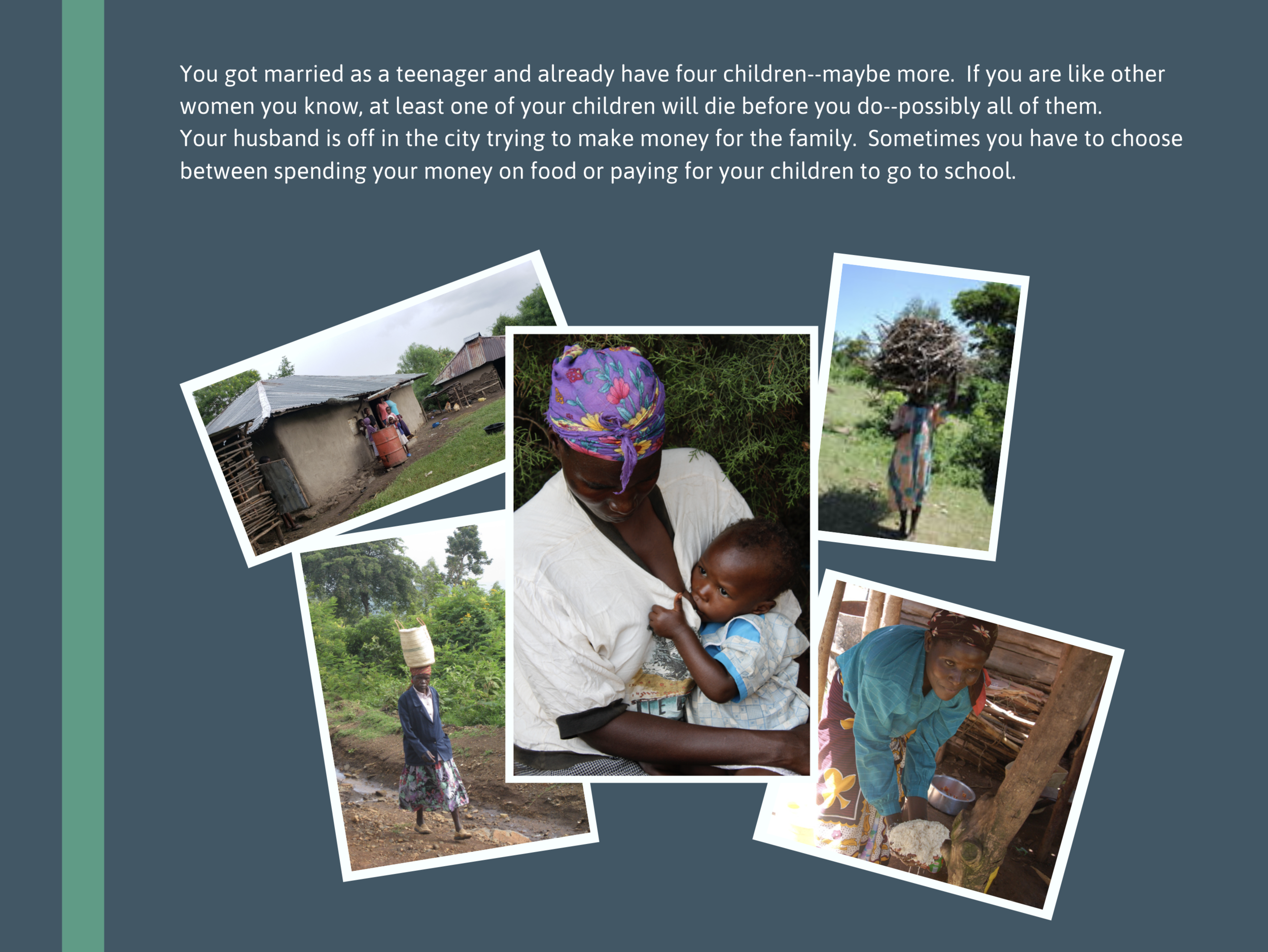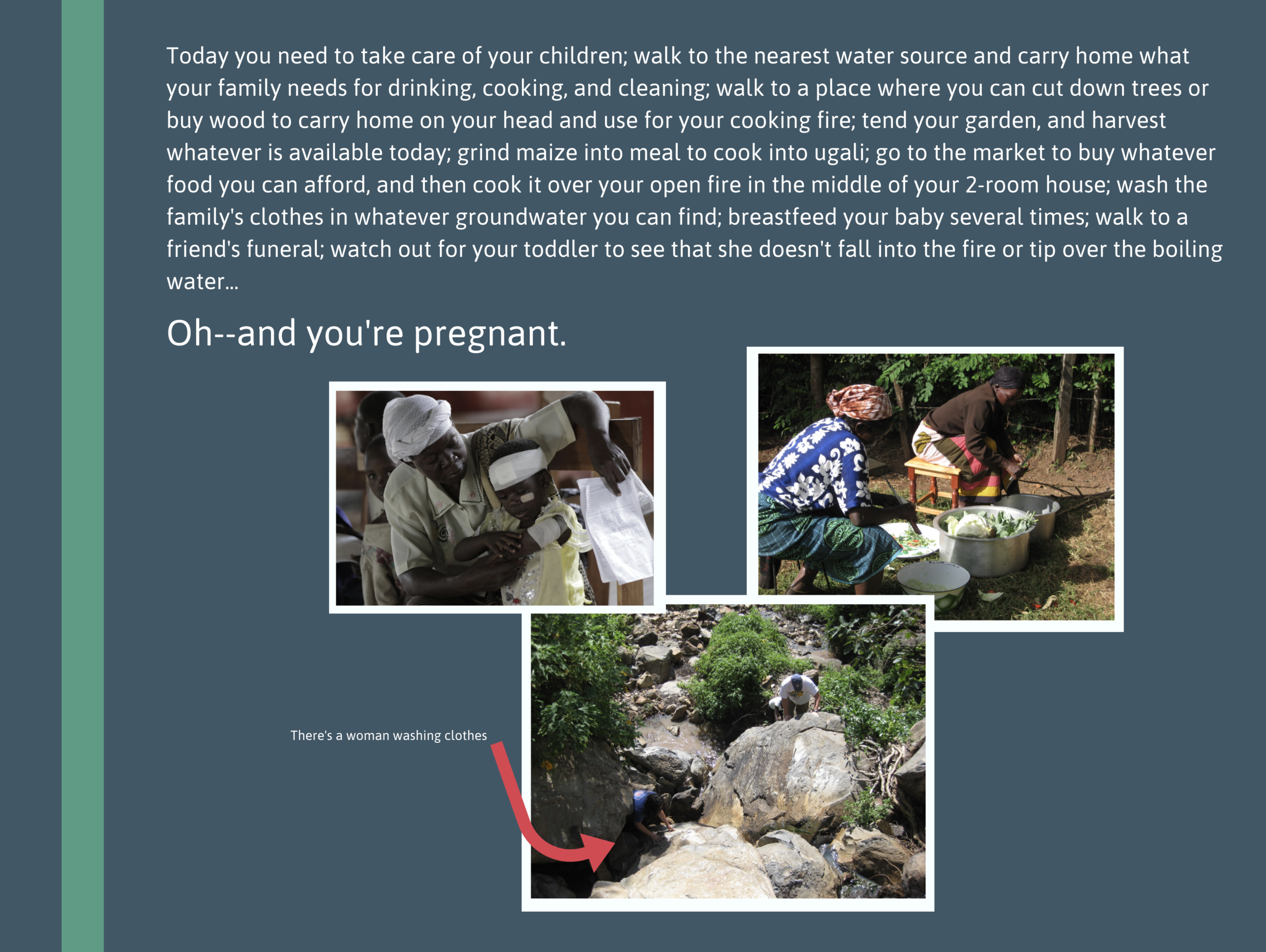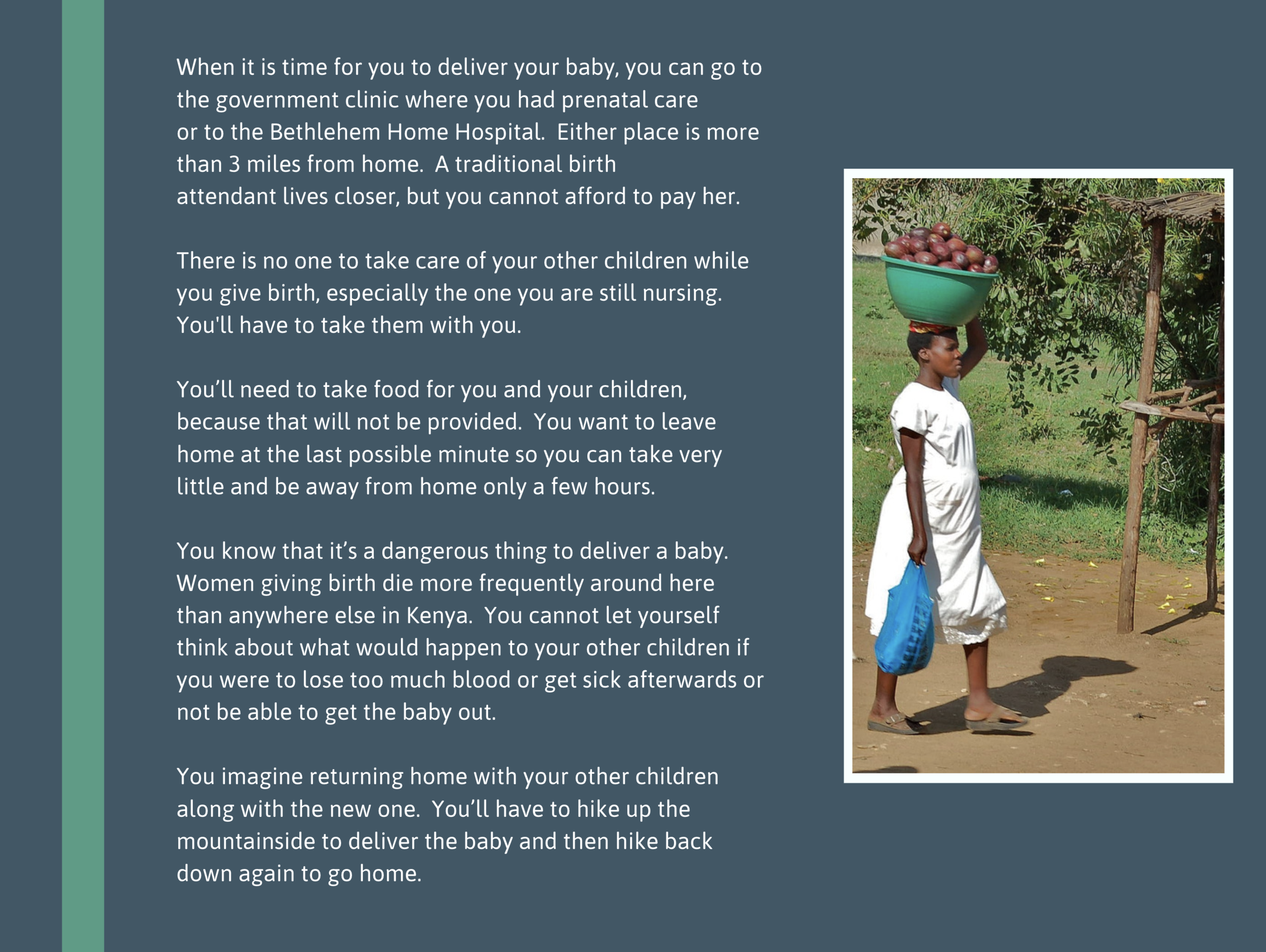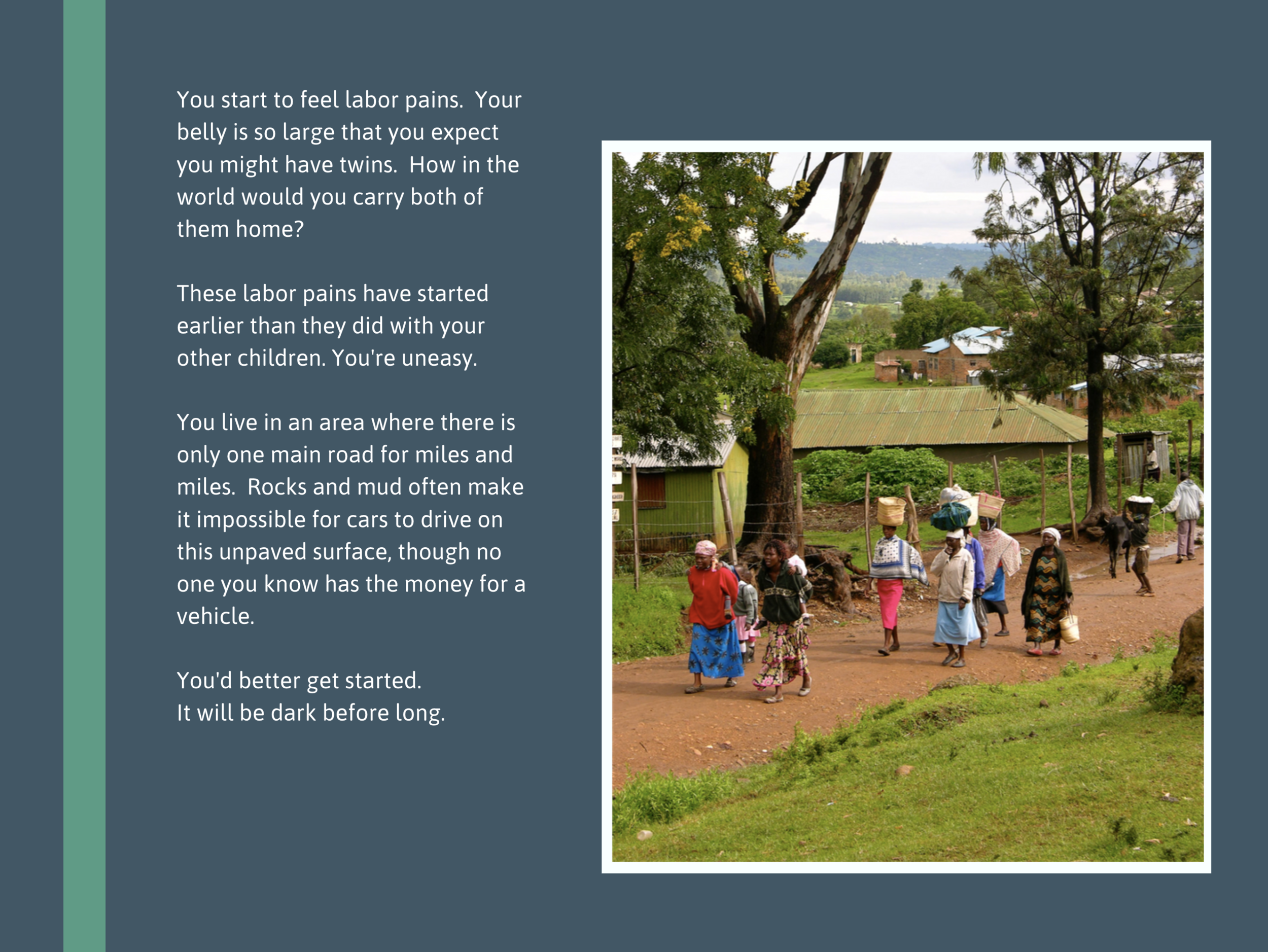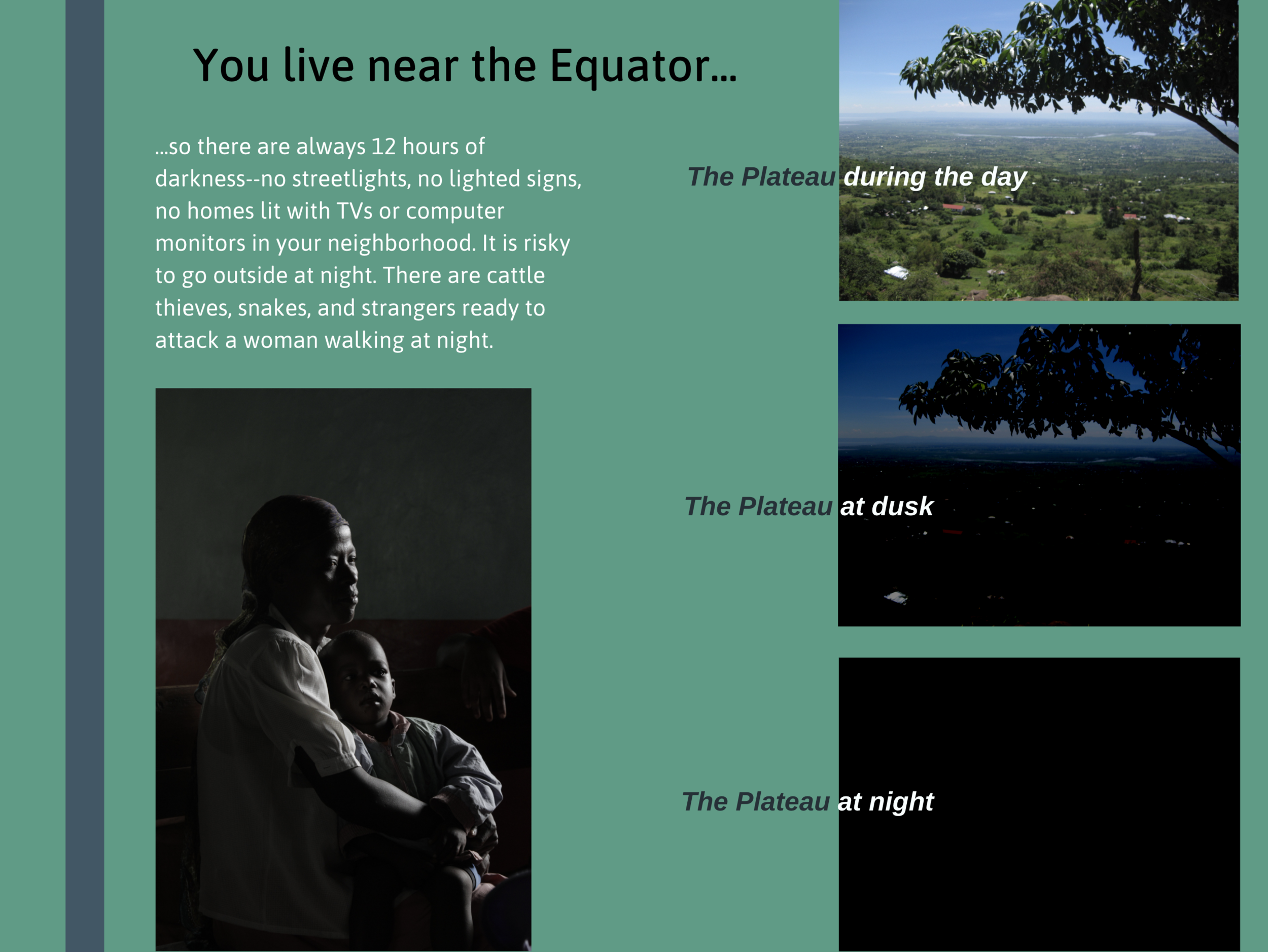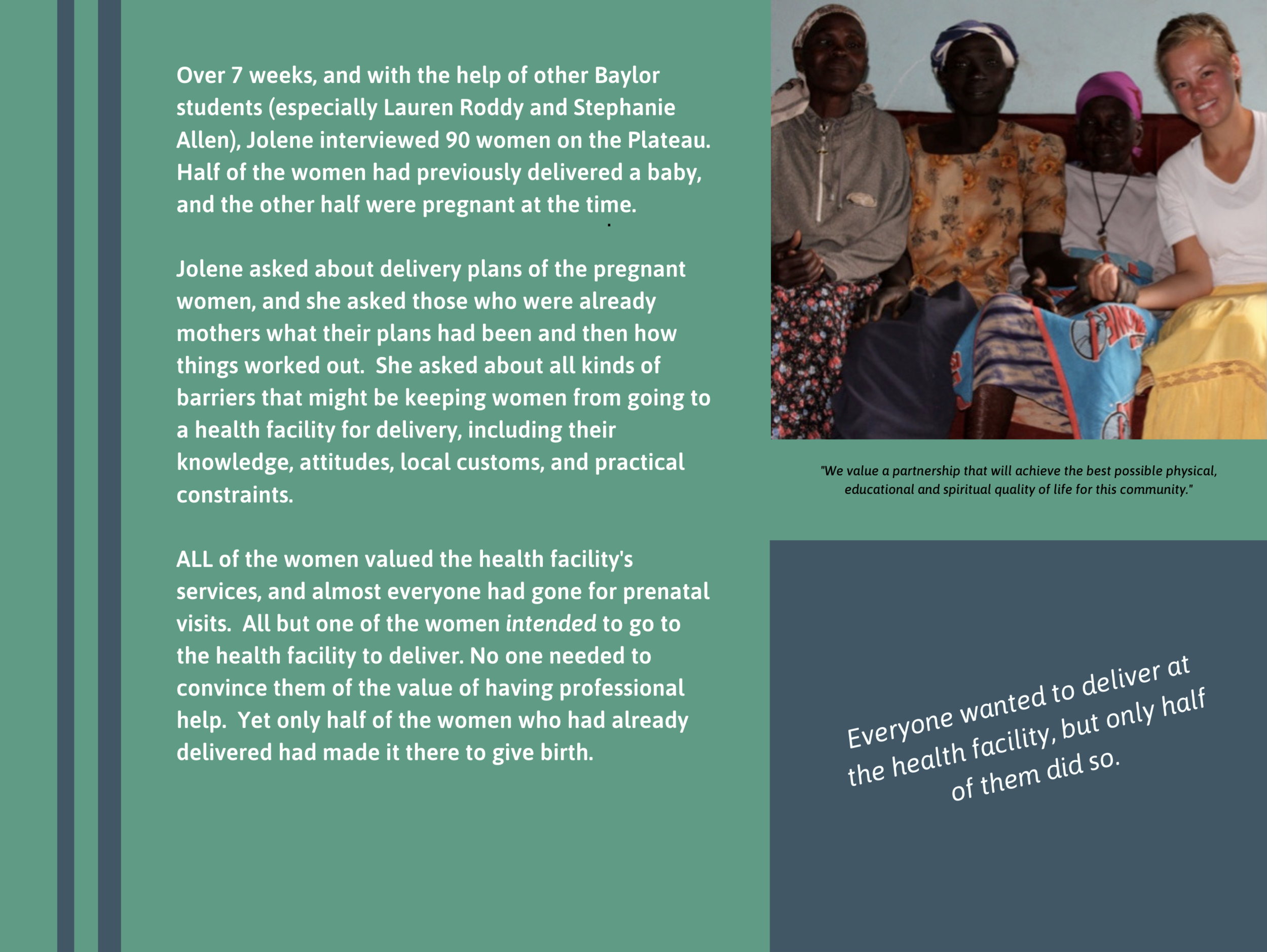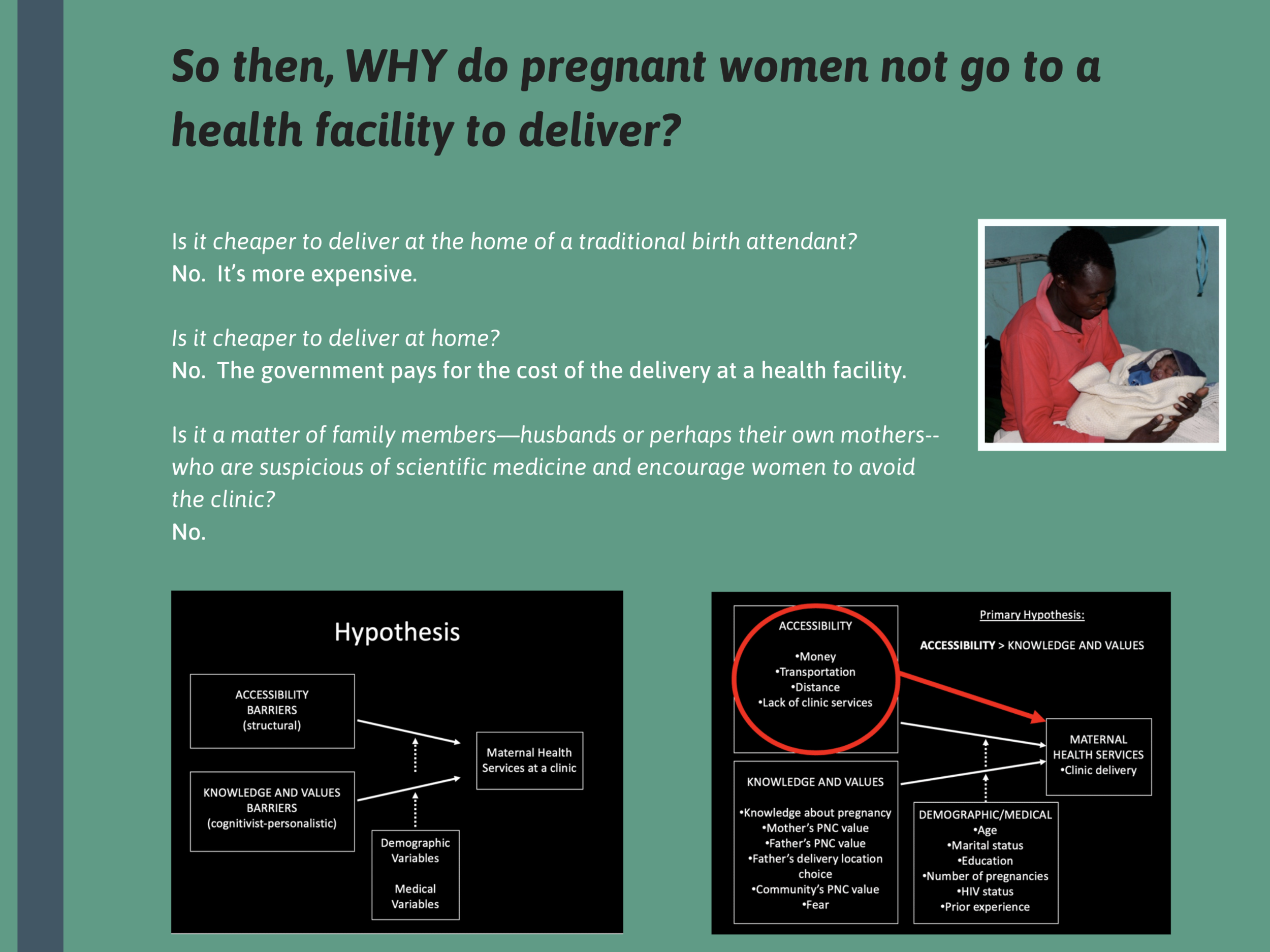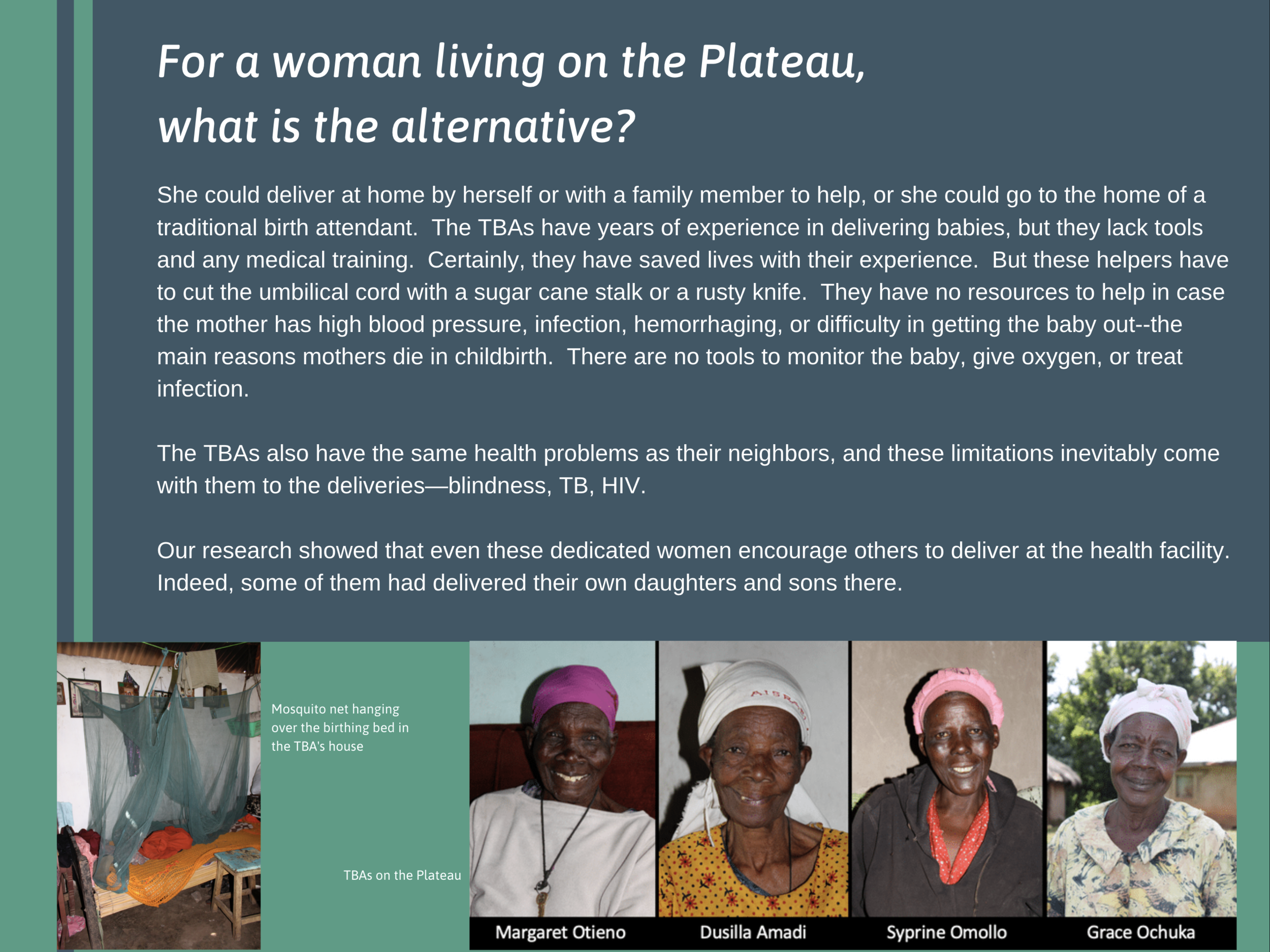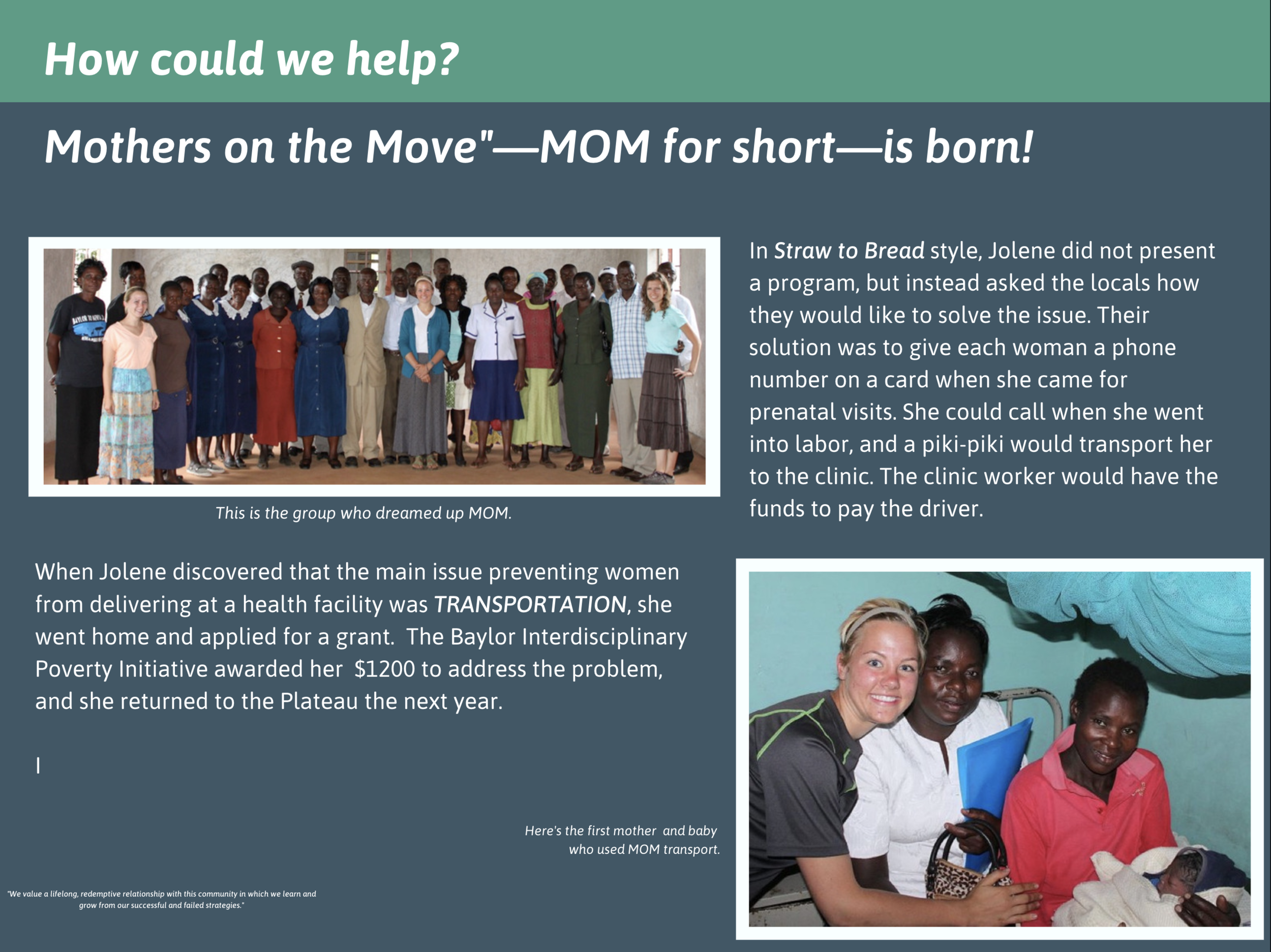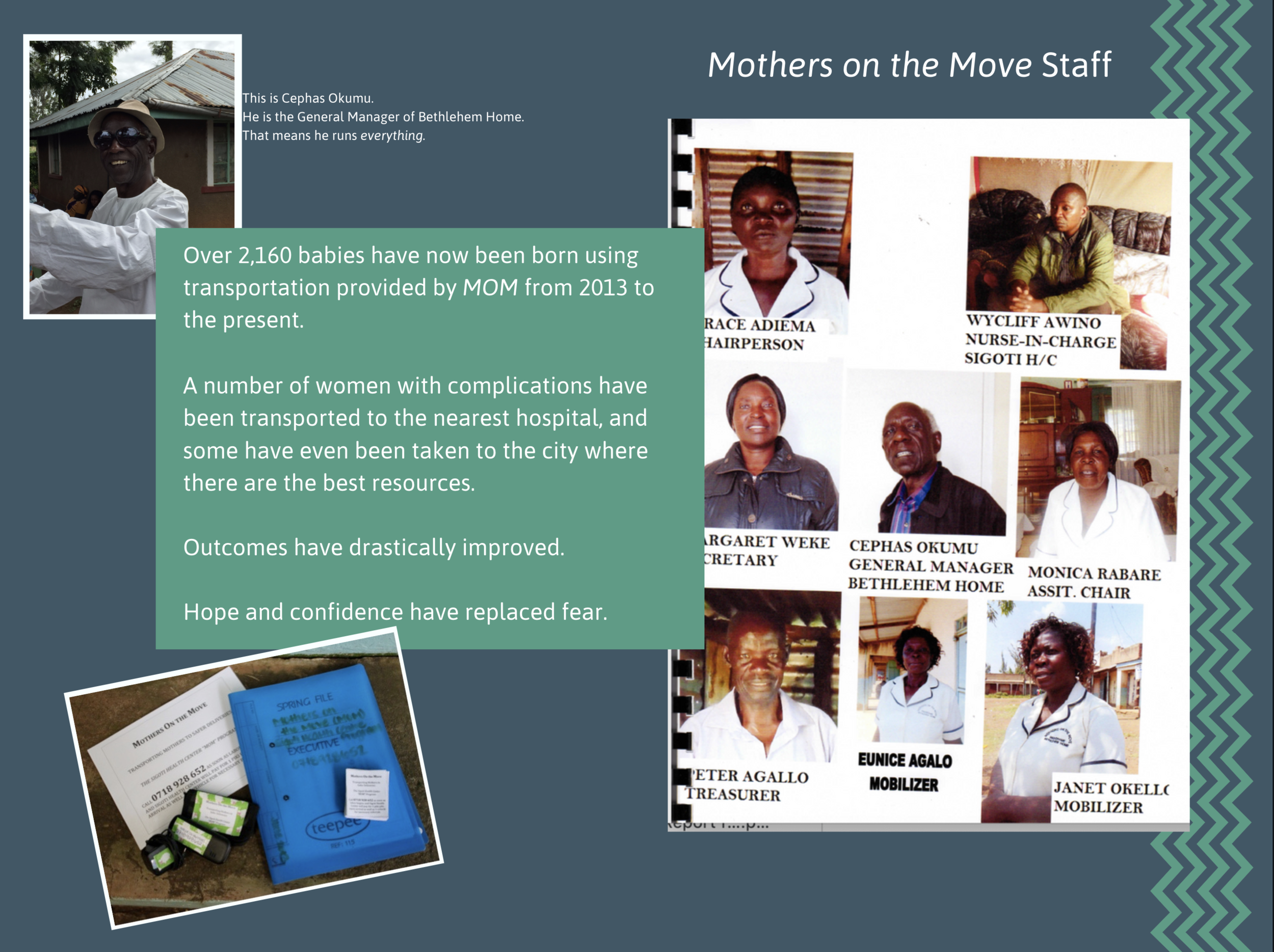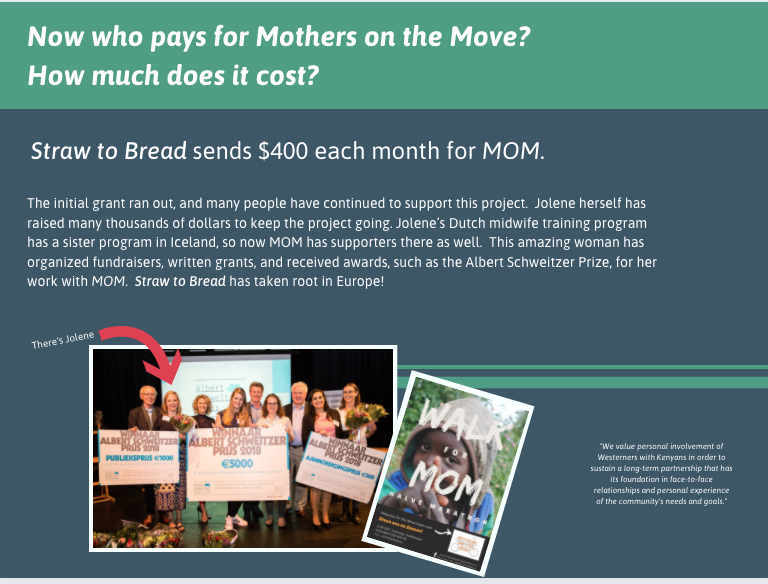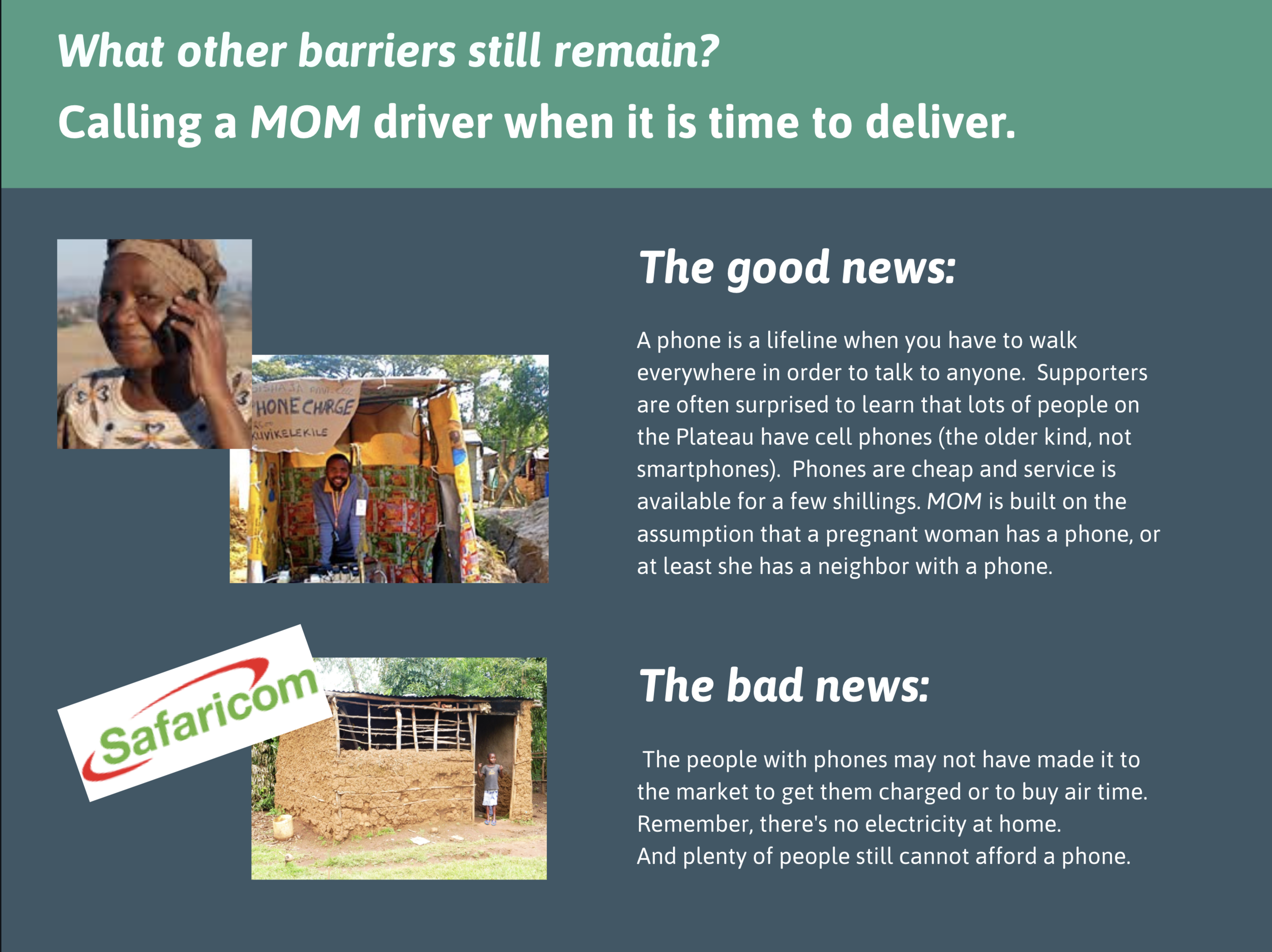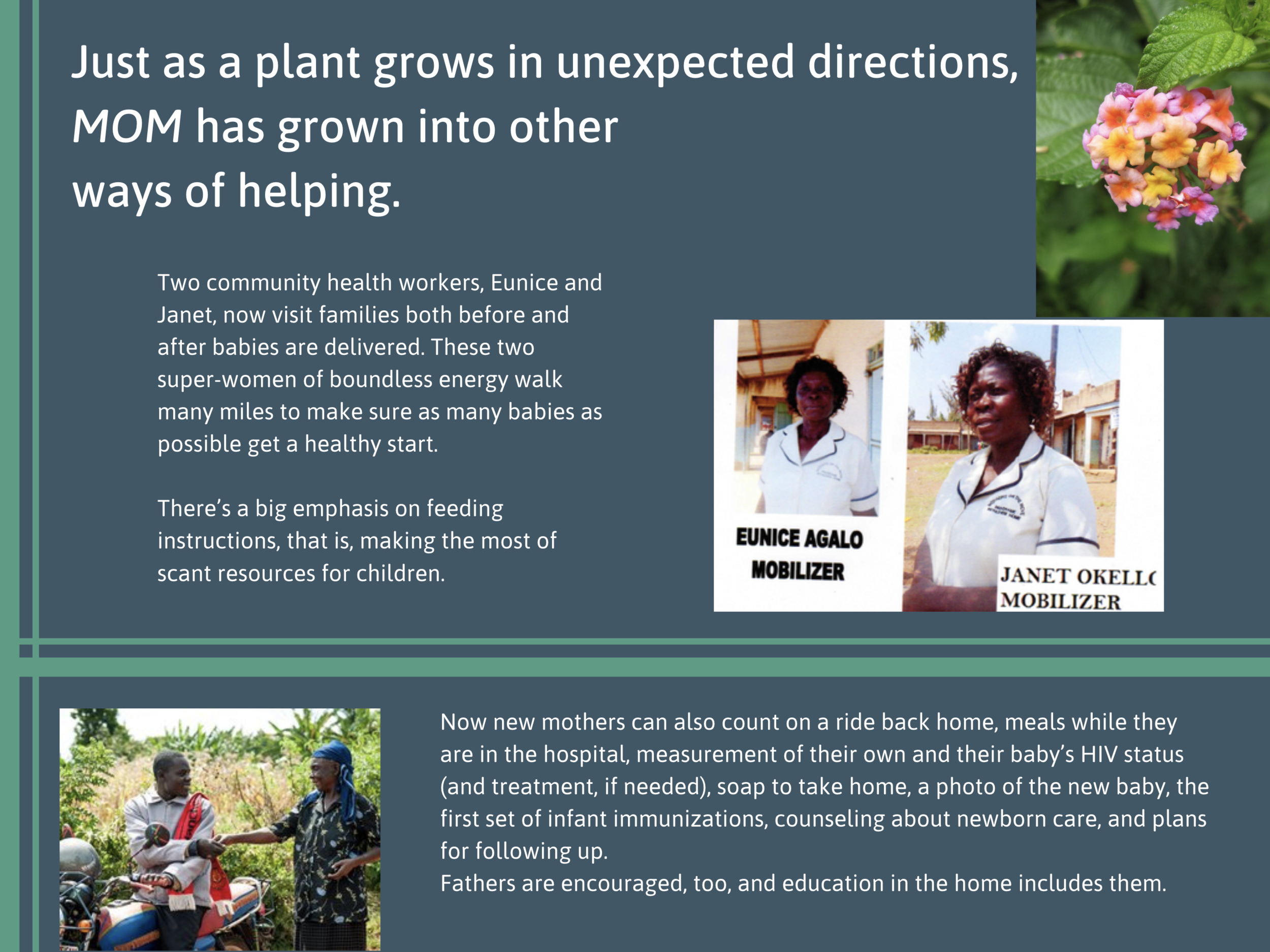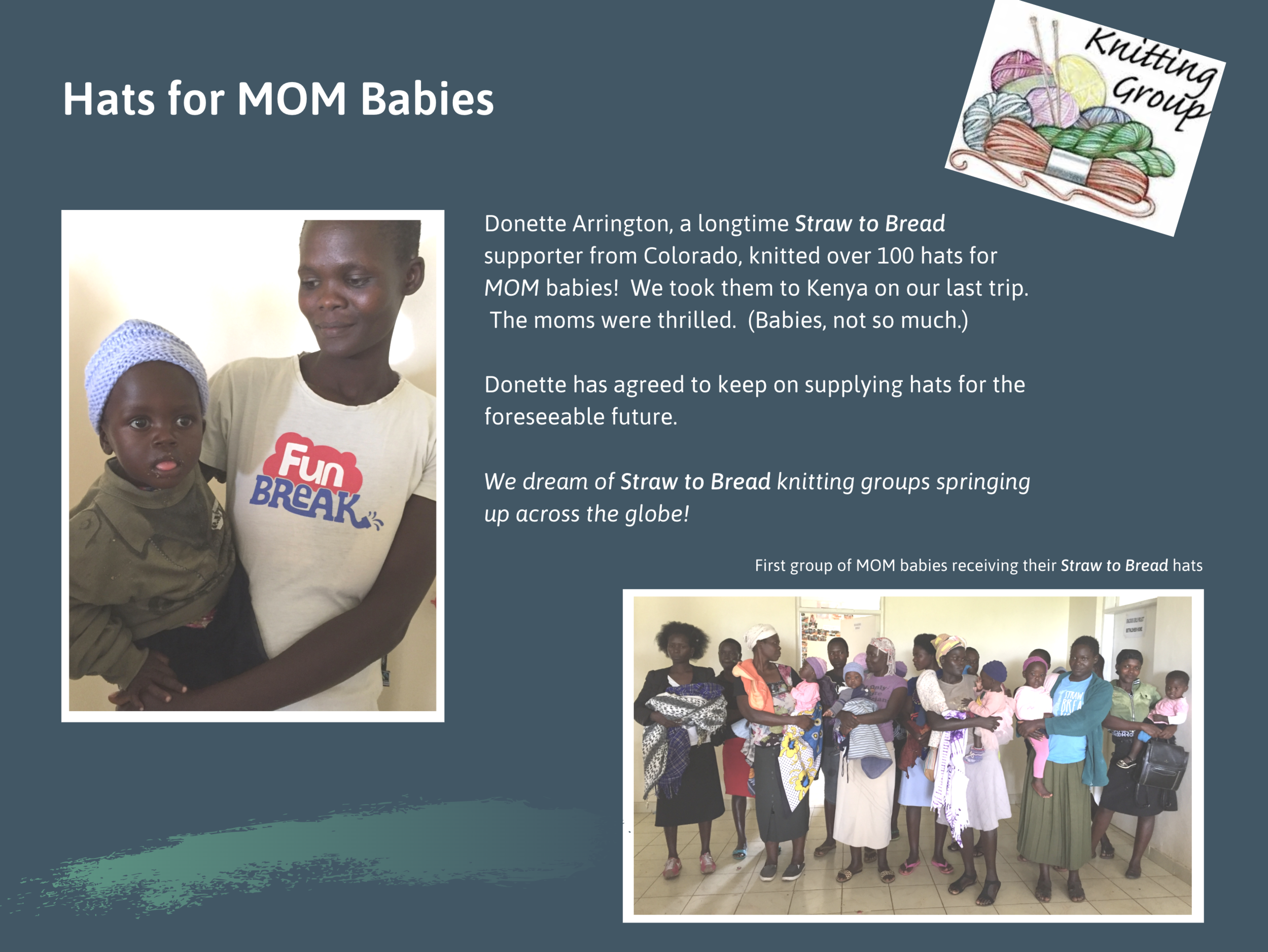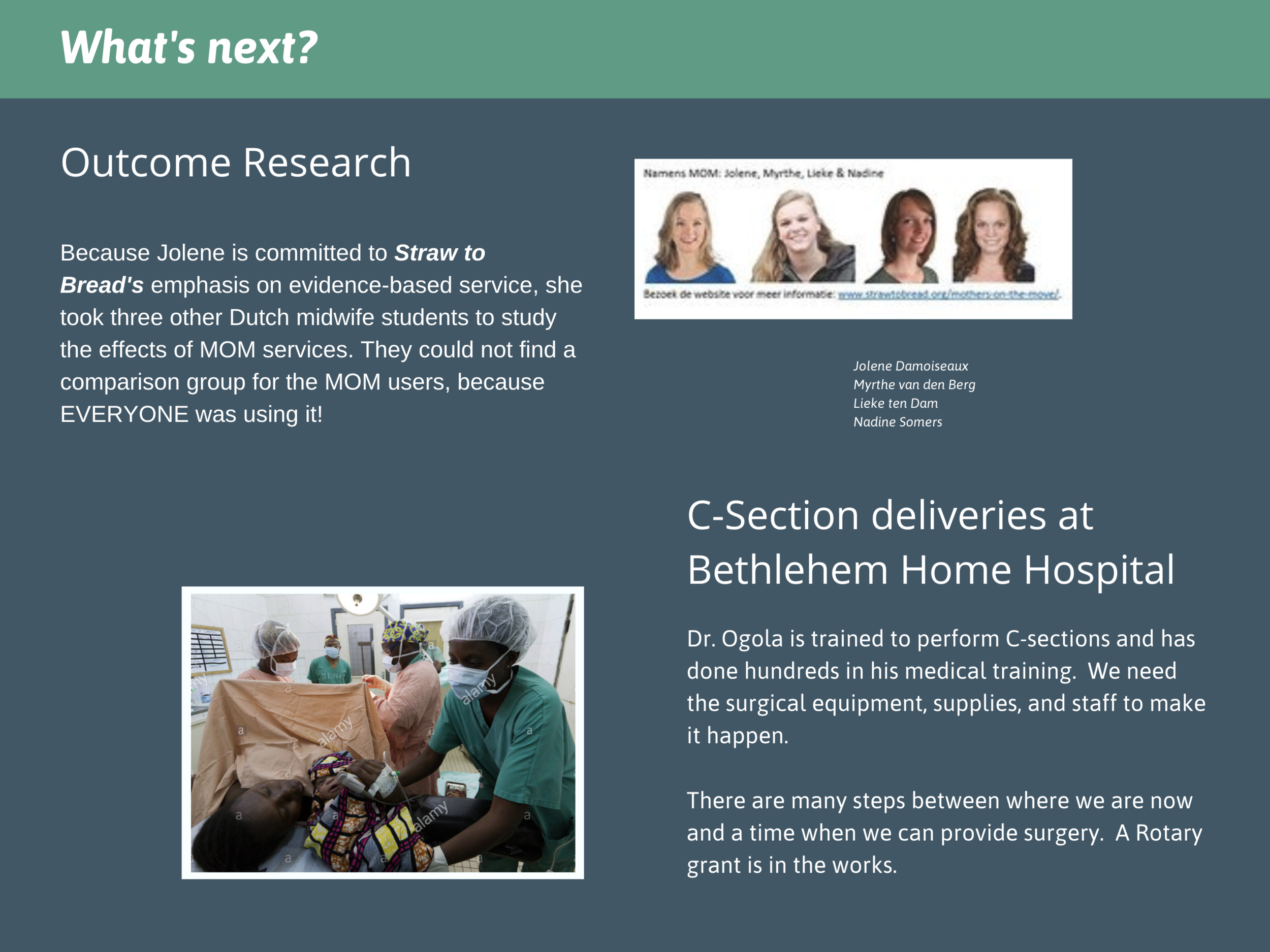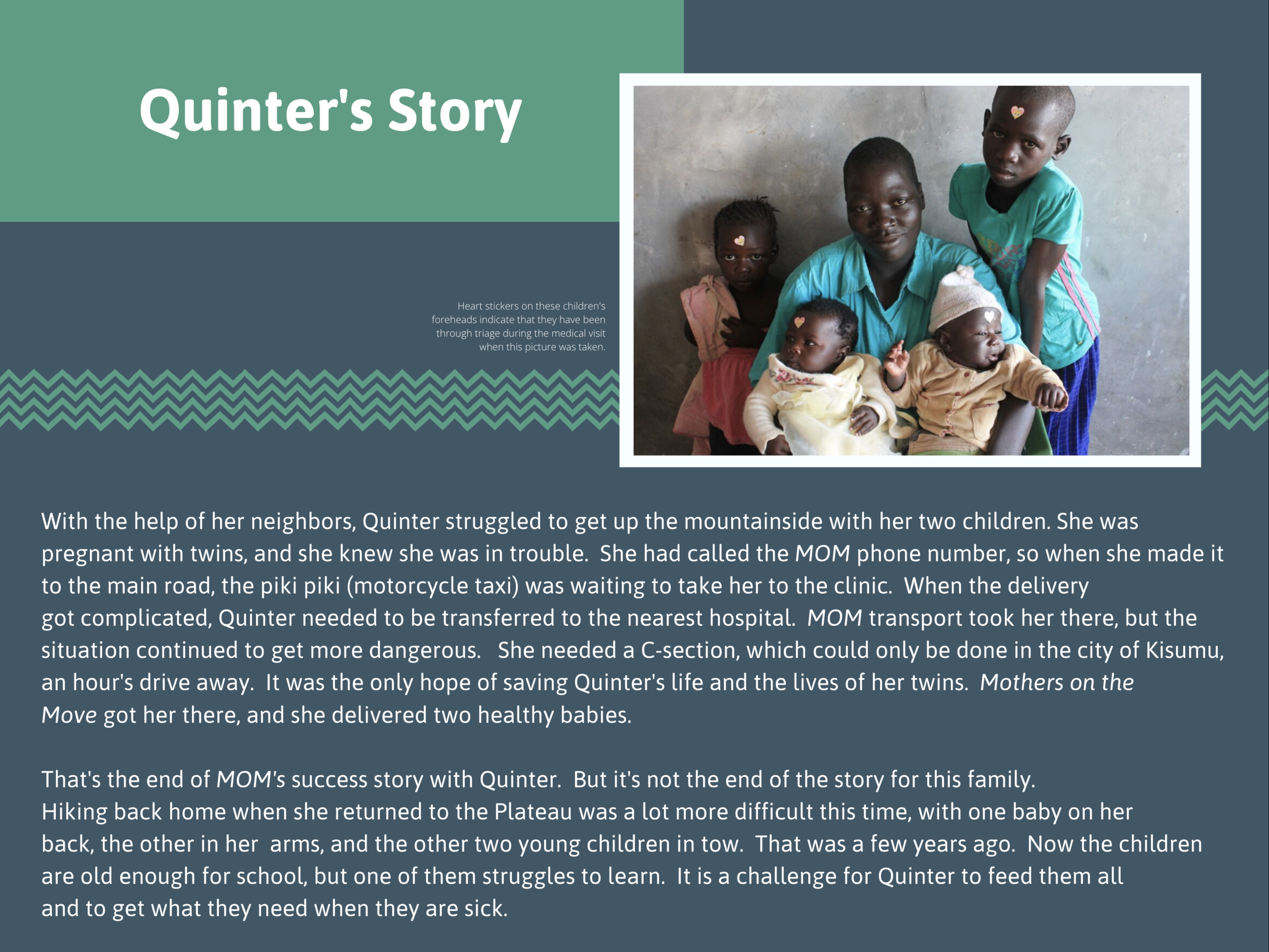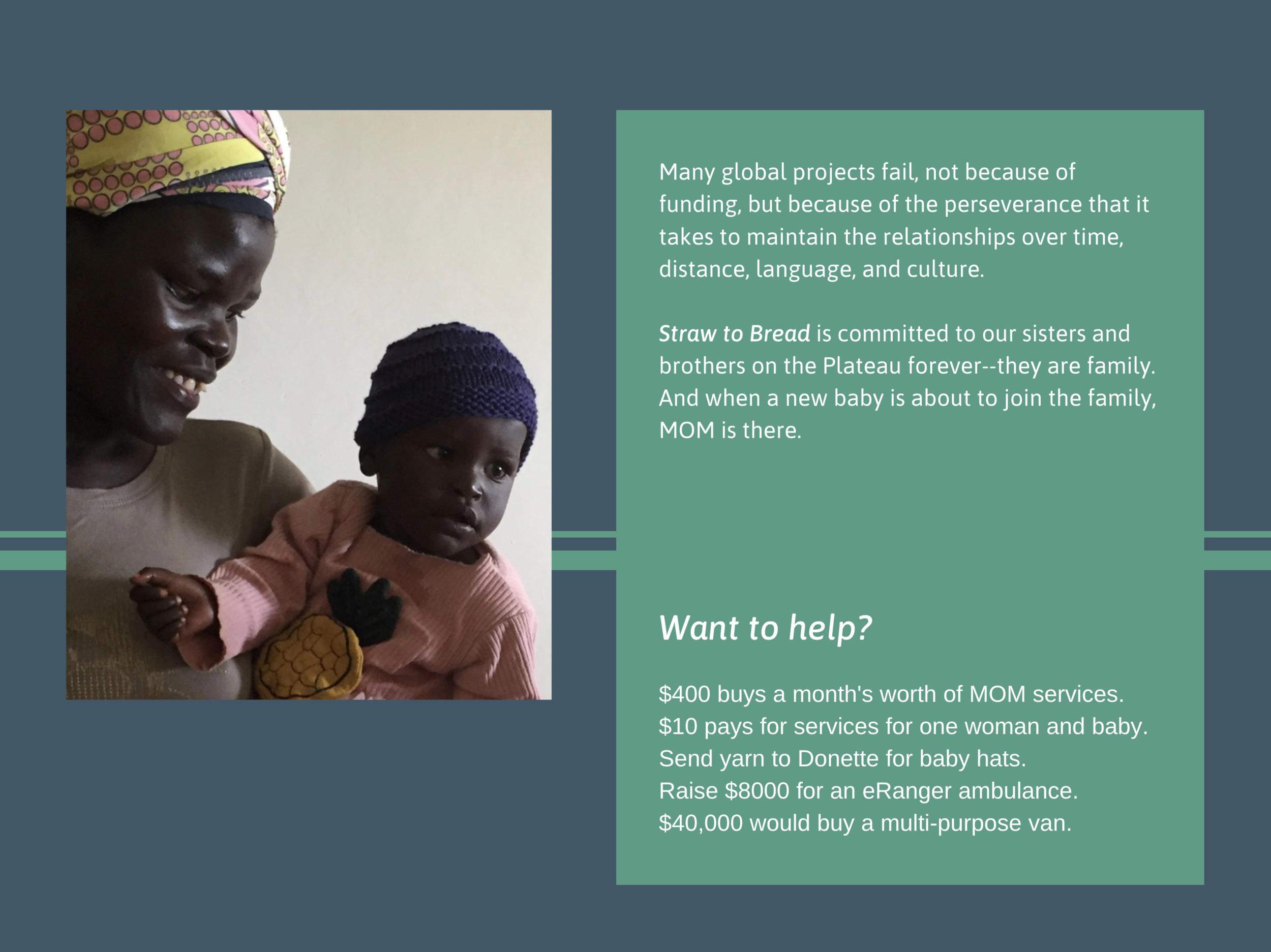THE STORY OF MOTHERS ON THE MOVE
by Jolene Damoiseaux (Founder)
Mothers on the Move provides transportation so that pregnant women can deliver their babies at a health facility with professional help.
“Do you remember me?” asked a familiar, curious face. “Of course I remember you! Emily Ouma!” I quickly responded. Hugging each other after almost a year apart, Emily enthusiastically exclaimed, “You interviewed me when I was 6 months pregnant and now I have an 8 month old daughter. Guess what her name is? … JOLENE Gloria Apollo!”
As an extension of the Straw to Bread annual trip in 2012, I had the opportunity to stay and live among the Luo tribe in rural western Kenya for two months. I had the privilege of interviewing ninety women there as a part of my college Honors thesis. My translators and I walked all over the Nyakach Plateau in search of a pregnant woman or previously pregnant mother who was interested in “answering several questions to allow us to improve the health of women in her community.” During these 90-minute interviews, I sat between my translators and our participant – four women huddled together to discuss something that tied us together despite our many differences.
I was able to bring the results of my research back to Kenya the next year. I reported to the community that 93% of the women I interviewed managed to seek prenatal care, but only 45% were able to safely deliver at a health facility. It became clear that all of the women in my study valued a health center delivery but faced significant structural barriers. Among these barriers, 92% of the women reported a transportation problem that forced them to hike an average of five kilometers after the onset of labor to deliver at the nearest health facility.
When Kenya’s President Uhuru Kenyatta proclaimed maternal health services free of charge, the faces and stories of each of the women I interviewed reminded me that this benefit would be an impractical if women on the Nyakach Plateau were unable to access those government-sponsored services in the first place – paying more money to deliver with an unqualified traditional birth attendant because they were unable to get to a health center. With a generous grant from Baylor University’s Interdisciplinary Poverty Initiative, I implemented a community-generated approach to helping women experience safer deliveries. In conjunction with the Sigoti Health Center on the Plateau, I started Mothers On the Move (MOM) – a program to pay for laboring women’s transportation to the Health Center as well as referrals for complicated deliveries to the more equipped St. Joseph’s Nyabondo Hospital. Since October of 2015, women can also go to Bethlehem Home Hospital, centrally located on the Plateau and staffed by Dr. Don Ogolla.
As the Kenyans living permanently on the Nyakach Plateau are much more of a solution to the problem of inaccessible health care than I am, I was grateful to witness their eager involvement and enthusiasm at the idea of Mothers On the Move. Their ongoing participation is vital to the success of this program, as they are responsible for raising awareness within their community as well as gathering data regarding our progress. Since its implementation, Mothers On the Move has transported over 2000 new mothers to the local health center or to the hospital. The “M.O.M.” phone number is now becoming a Luo sign of hope, trust, and most importantly the beginning of new life.
Here is more about what it’s like for women on the Plateau to deliver a baby.


